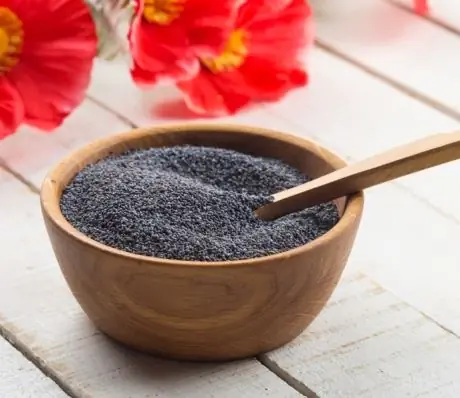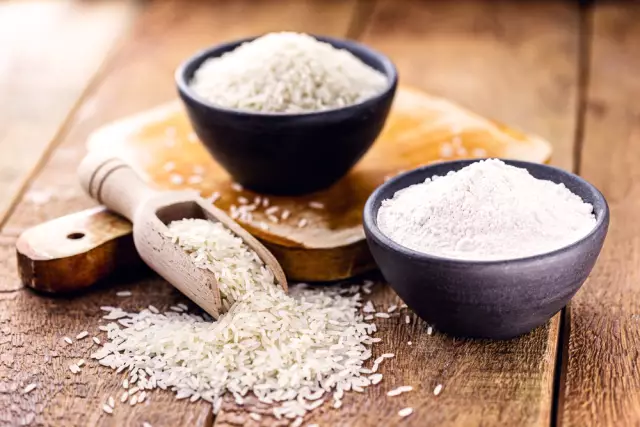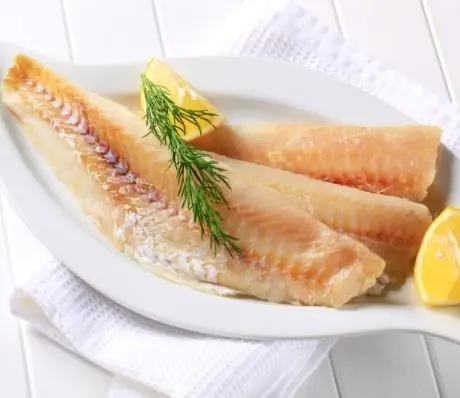- Author Rachel Wainwright [email protected].
- Public 2023-12-15 07:39.
- Last modified 2025-11-02 20:14.
Okra
Okra is an exotic annual herb that is classified as a vegetable. Ladies' fingers or Gombo, as it is also called, is now widely cultivated in European countries. The beneficial properties of okra are due to its rich chemical composition.
The ratio of BJU in the product

Source: depositphotos.com How to burn 33 kcal?
| Walking | 8 minutes |
| Jogging | 4 minutes |
| Swimming | 3 min. |
| A bike | 5 minutes. |
| Aerobics | 7 minutes |
| Household chores | 11 minutes |
Useful properties of okra
The fresh fruits of okra are pyramidal pods, reminiscent of green peppers, covered with fine hairs. They contain many nutrients. Among them are vitamins B6, A and K, and a large amount of ascorbic acid. Also, the fruit contains compounds of thiamine, calcium, iron, potassium and folic acid. Most of all okra is valued for its high content of protein compounds and dietary fiber.
Okra is widely used in Ayurveda as a tonic, anti-aging and energizing food. The benefits of okra for pregnant and lactating women are especially obvious, thanks to the folic acid included in its composition.
Okra is a valuable low-calorie product. 100 g of pods contain 40 kcal and therefore can be included in various diets. By activating the synthesis of vitamin B, okra helps to get rid of depression and chronic fatigue. It is useful to eat it during colds, since it also has antiseptic properties.
The benefits of okra are also manifested in digestive disorders. Natural fibers and plant mucus help to flush out metabolic toxins, excess cholesterol compounds and excess bile. These properties of okra contribute to the development of normal intestinal microflora, the reproduction of beneficial bacteria, which especially helps with dysbiosis, bloating and constipation. The benefits of okra make it an important food for diabetes as it lowers blood sugar.
Okra pods also contain pectin substances that promote the adsorption of heavy metal salts. Okra is useful in preventing colorectal cancer, cataract and diabetes, as evidenced by many studies. Studies have also noted the beneficial effects of this plant on joint and vascular mobility.
Okra seeds are also beneficial, they have a tonic effect. Roasted seeds are often used to make a beverage that tastes like coffee. In addition, they contain a large amount of oils, similar in nutritional value to olive.
Application
Okra is widely used in cooking. For cooking, bright green pods 8-10 cm without dry blotches are suitable. Fresh pods are best cooked right away as they spoil quickly. Okra can be used raw, stewed, boiled or fried. Since the pods do not have a pronounced taste, they are easily combined in salads, soups and vegetable stews with other vegetables - onions, tomatoes, zucchini, bell and paprika and garlic. In addition to pods, plant leaves can be added to salads. Fried okra pods are great with meat, fish or rice dishes.

When cooking okra, it is not recommended to use cast iron and copper dishes, so as not to change its color. Okra is stewed quickly, within a few minutes, and is best combined with butter and lemon juice, and for spices, with pepper, ginger, thyme, curry and marjoram. Often okra is added instead of zucchini to ratatouille.
The properties of okra are also beneficial in cosmetology. So, from it you can prepare a healing balm for depleted hair. For this, okra pods, cut into strips, are boiled to a slimy consistency. After the mixture has cooled, it is recommended to add a little lemon juice to it, then make a hair mask. Okra pulp can be added to face masks. It helps to smooth the skin and helps to clear acne.
Contraindications to the use of okra
Okra is a valuable dietary product that has practically no contraindications.
It should not be eaten only with individual intolerance and tendency to allergic reactions.
YouTube video related to the article:
Found a mistake in the text? Select it and press Ctrl + Enter.






